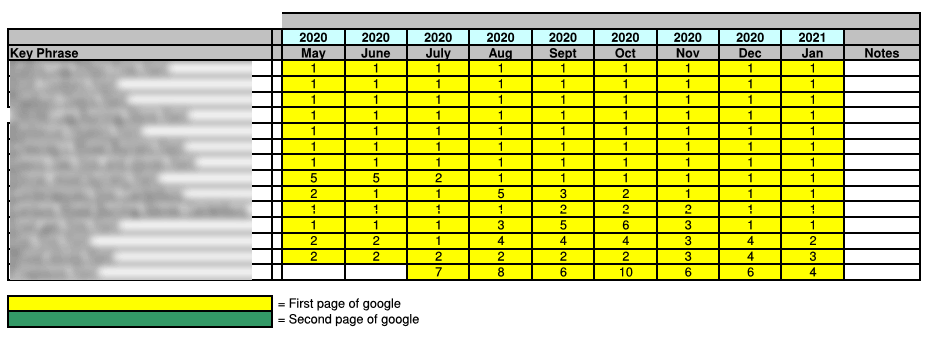Google search engine optimisation (SEO)
Search engines.
By far the biggest and most used search engine in the UK is www.google.co.uk with over 90% of the UK search market.

Make sure your web designer of choice optimises your website with Google in mind using their ‘best practice’ search engine optimisation (SEO) techniques.
TIP. You can test your web designers SEO abilities by asking for sample sites and running them through Google using their key word phrases.
What is SEO?
Search Engine Optimisation, the process of adding selected keyword phrases that represent your business to your web content.
Selecting your keywords
For most business owners this is relatively easy, for example the keywords for a builder are:
- general builder
- bricklayer
- new builds
- extensions
- kitchens
- bathrooms
There are plenty more but as an example this would represent a good description for about 70% of their core services.
But if you typed ‘general builder’ into the Google search engine you would get a massive delivery of result from all over the UK and beyond.

sample of a ‘refined’ or ‘long tail’ search using a geographical area
To refine the search you would usually add more search terms, so called ‘long tail’ searches, ie: ‘general builders in [county, town or city]’ or even more refined by adding a specialty, ie: ‘eco friendly builders in [county, town or city].’
Now we’ve defined the possible search terms for your business your web designer needs to add these phrases into your web pages. This has become a specialist field and we now have a new trade called ‘search engine optimisers’
Also see: Google website design

sample Google SEO report courtesy www.GoTopSEO.co.uk
Benchmark your keyword phrases
List you phrases, archive them and refer back to them to see how well you are doing on Google’s results pages.
TIP: Always search your results using the browser ‘private’ setting so your previous searches do not influence the results
What does an search engine optimiser do?
Apart from the visible areas of a website that the human eye can see, there are a number of other areas within the web page coding that can also be tweaked. Some components can be edited by the business owner if they have access to the website control panel (CP).
TIPS: When you supply an image for your website rename the file name to a description of the image using your keyword phrases, ie: DSC1000.jpg (camera file name) to new house in [county or city].jpg. The Google search ‘bot’ will find this and if applied, the ‘alt tag’ description as well.
An optimiser will also work ‘off page’ using sites that they use to ‘blog’ and link to your pages. So called ‘back links’ from these sites and directories also make up the bigger cache picture for Googles search algorithms.
TIPS: If you contract an optimiser insist on: reporting, fixed rates, contract timescales.
TIPS: Make sure your web pages are backed up just in case there’s a problem caused by your optimiser
There are many other important features that have to be included for the complete Google SEO process covered in our holistic web design page
How does social media work with websites?
We get asked this one a lot and the simple answer is – if you have the time and imagination it can work well. Do not expect being active on Facebook, for example, is going to rocket your web pages on Google, it wont! Google can’t see your Facebook pages, but it is a high traffic route to your business. Look upon social media as another arm of your website that already has a high profile, but be warned – social media marketing is very time heavy.
Our top tips are:
- make you social media page look professional
- use your company logo and corporate imagery
- make any comments short, clear and interesting
- always link to your website
- avoid conflict
- grow a fan base
- advertise your social media pages (website, marketing material etc)

